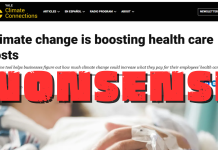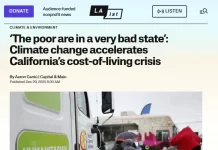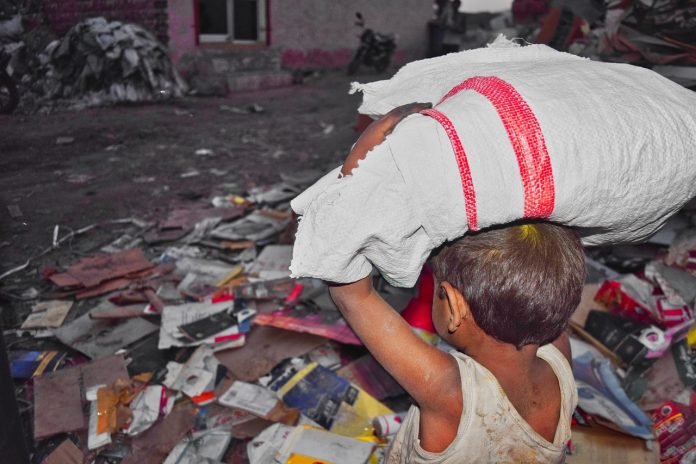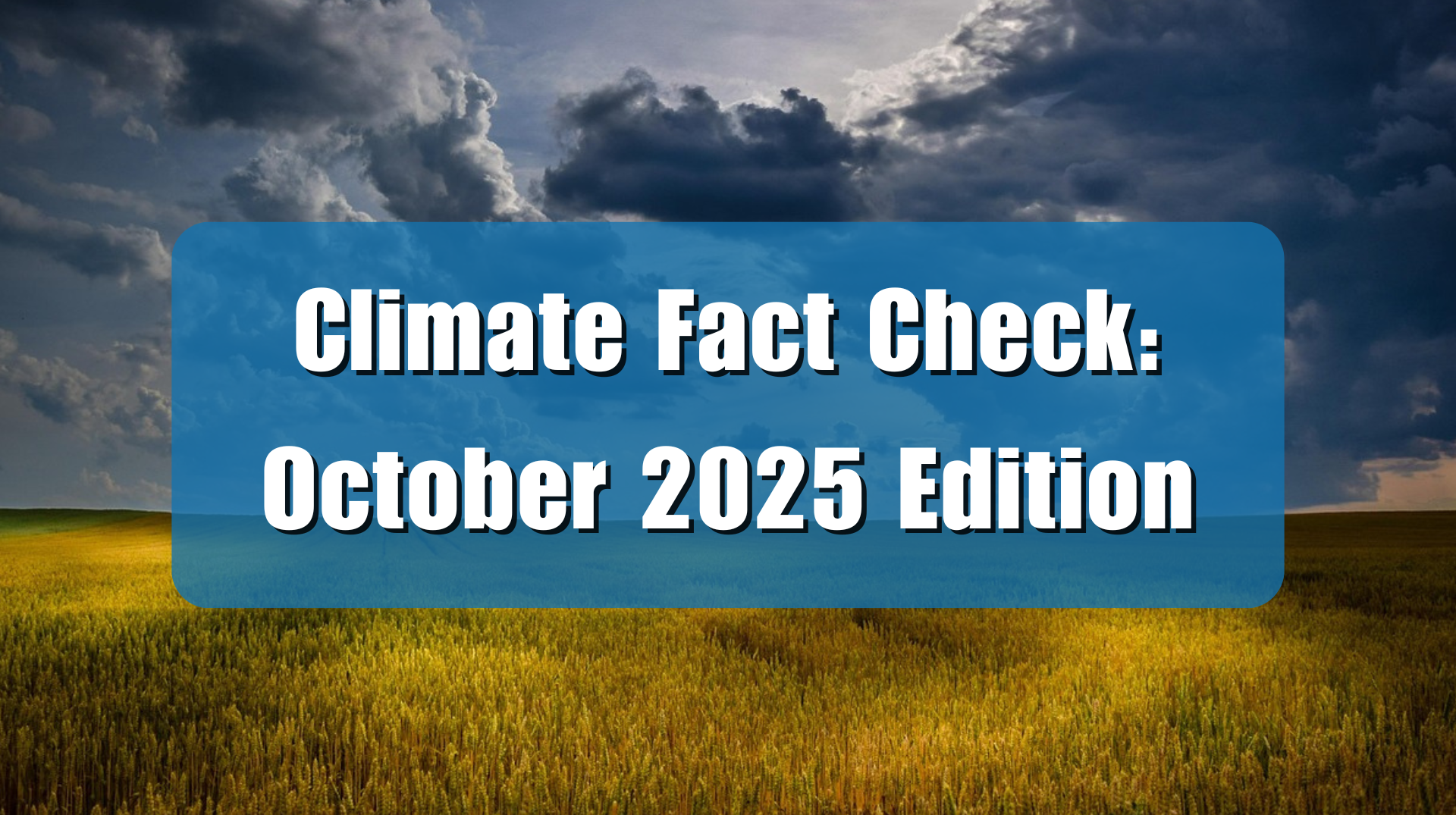A recent Bloomberg article describes a new tool that scores companies based on how much they rely on child labor, which the news outlet claims is exacerbated by climate change. This is false. While weather disasters can force people into desperate circumstances, extreme weather is not getting worse. Further, it is much more likely that the increasingly forced energy transition to renewable energy technologies in the name of stopping climate change is a much more direct child labor threat multiplier.
In the article, titled “Climate Change Poses a Child Labor ‘Threat Multiplier’,” Bloomberg describes the new tool is an AI-driven index that it refers to as “a newly developed quantitative approach may help raise its prominence as an environmental, social, and governance issue.” This corporate speak means that it is supposed be used to pressure companies that rely on high amounts of child labor anywhere in their supply chain.
The article goes off the rails when Bloomberg cites an International Labour Organization study that claimed climate change is a “threat multiplier” for child labor, because poverty forces people to rely on their children to help work and earn money for the family.
Bloomberg insists that “[a]s environmental disasters push more people into poverty, families are forced to pull children from school and put them to work in farm and field,” citing child labor due to bad weather in Cambodia, Tanzania, Uganda, Pakistan, and “a similar dynamic is unfolding in Peru, Ethiopia, Nepal, and Ivory Coast[.]”
The problem is, climate change is not causing more frequent or intense extreme weather conditions and the poverty rate has fallen considerably over the past few decades of modest warming.
As explained in Climate at a Glance: Deaths from Extreme Weather, real world data show no significant increase in extreme weather over the last 100 years. What’s more, data show that certain types of extreme weather, like extreme cold conditions, have declined, and so have human deaths associated with weather or climate related disasters. While deaths are not a direct and perfect analog to the destruction of crops or homes, they do show that the peril associated with extreme weather in general is declining –due to advancements in technologies, and the fact that the weather simply isn’t getting worse.
Even in the case of Africa, although the media has recently run plenty of articles claiming that climate change is devastating a variety of crops this year, it’s not clear that climate change is actually making the weather or even crop production worse.
In the case of West Africa, for example, which is directly referenced by Bloomberg’s post by mentioning the Ivory Coast, Climate Realism has already shown, here, that bad harvests of cocoa due to weather this year were mostly driven by the naturally occurring El Niño conditions, not climate change. When crop production data is looked at over a longer period, it becomes clear that the average trend over time is towards increasing crop production, not catastrophe. (See figure below)
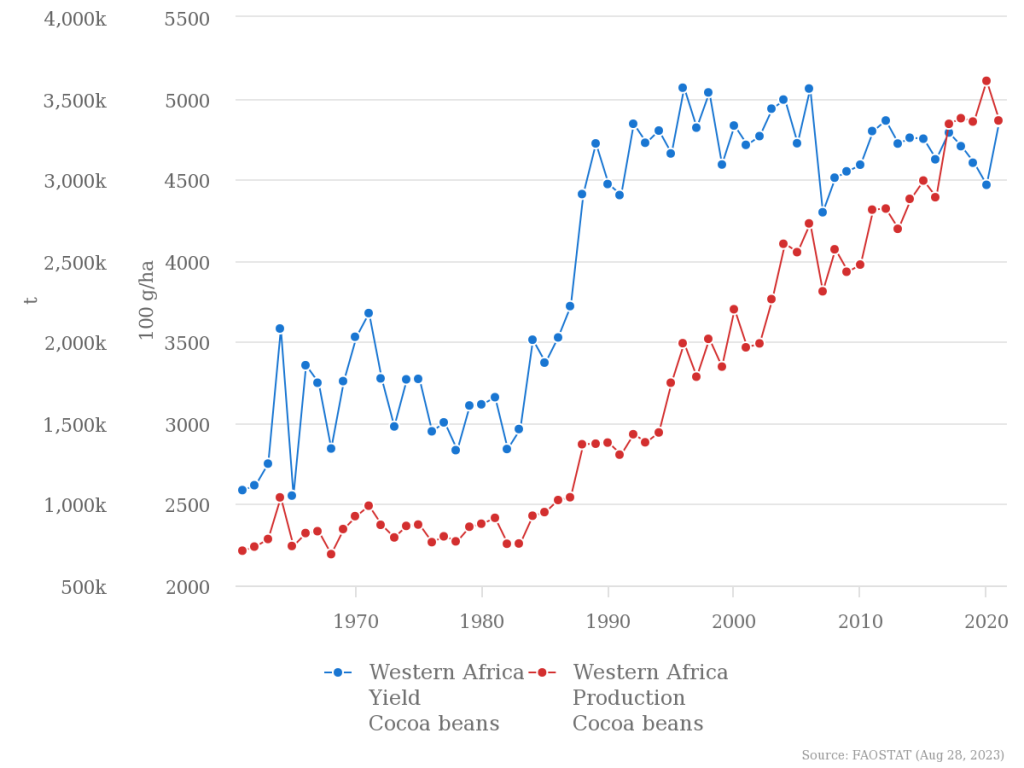
Bloomberg is also wrong to claim climate change is driving rising poverty globally, and pushing more people into using children as laborers. Poverty has been on a multi-decade decline, especially during the periods with the most warming. According to data from the U.S. Agency of International Development, poverty levels dropped from 43 percent of the global population in the 1990s, to just 21 percent by 2011.
World Bank data likewise show the share of the population living in extreme poverty around the world has been dropping. (See figure below)
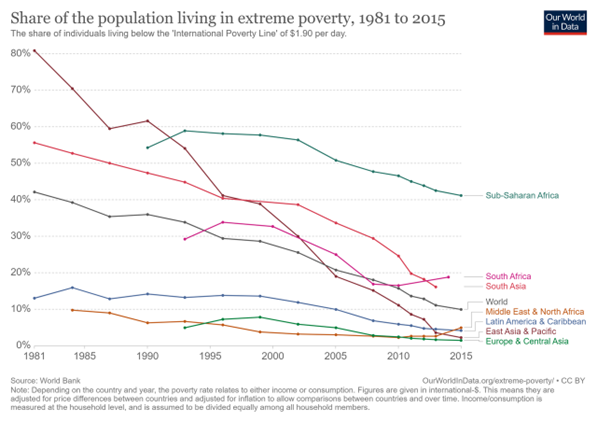
Future projections by groups like the Brookings Institution project that this trend in declining extreme poverty will continue, (see Figure below) and organizations like the United Nations, U.S. government, World Bank and others target 2030 as the year extreme poverty may be driven down to “global zero.”
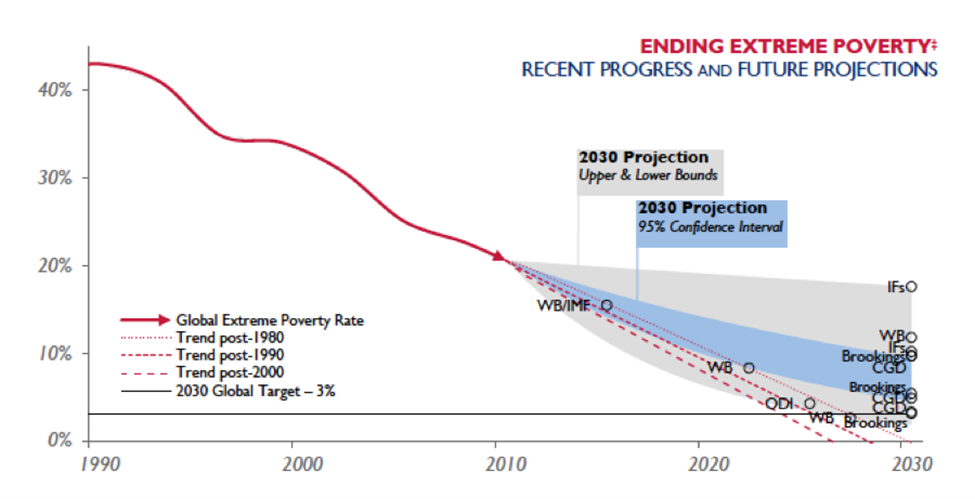
The real driver of child labor, other than lingering poverty in general, is the increasing demand for materials, often materials demanded for green energy technologies, found in third-world countries that are currently responsible for a lot of child labor. A prime example is, cobalt used for lithium-ion batteries, more of which is needed for things like electric vehicles, than phones or laptops. A 2018 report says each EV battery needs over 30 pounds of cobalt, and predicted that the cobalt demand would skyrocket as electric vehicle sales (pushed by climate mandates) increased.
According to Humantraffickingsearch.org, the world’s largest cobalt producer is the Democratic Republic of Congo, about 60 percent of global production. The DRC is known for using child labor in “artesian” cobalt production.
Bloomberg gets partial credit for a single paragraph in which the writer acknowledges that materials vital for “climate transition commodities” also use child labor, which the founder of the company that created the index said might surprise some investors.
“For example, an asset manager may be unaware of the true extent of child-labor risk for certain climate-transition commodities, such as tin used in solar panels, lithium for batteries or even sugarcane used for some forms of renewable energy,” they write.
Bloomberg’s writer seemed to miss the fact that while it is true that poverty drives much of the world’s worst child labor exploitation, in most places it is allowed to flourish due to government corruption, limited private property rights, a lack of child labor protections, and, increasingly, the demand for green energy technologies. Child labor is not being caused or exacerbated by climate change. One good way to ensure that child labor continues is by increasing the demand for solar panels and other “green” technologies that rely on mining in extremely poor areas, and by refusing those poorer countries the ability to develop using cheap and reliable fossil fuel energy. Bloomberg turned what could have been a powerful expose of the use of child labor in the creation of modern technologies, into another false, “climate change causes everything” narrative.




